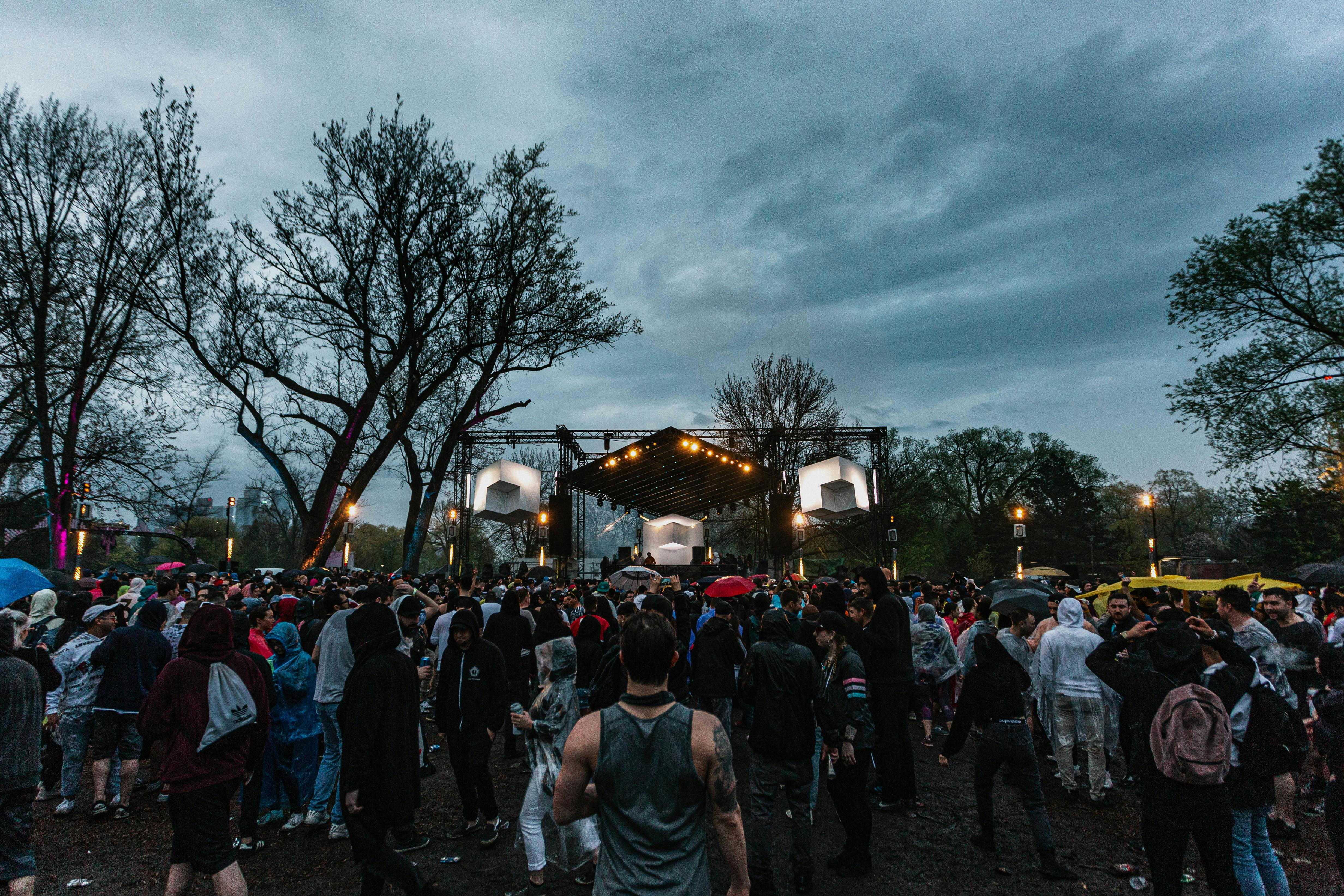Festival Organisers Buying Used vs New Temporary Stages and Rigging.

For small and medium sized music festivals the building of temporary stages and rigging can be a major investment often subject to delays from suppliers and contractors. Is buying a used second-hand temporary stage and rigging a good direction to pursue to save money and time during a site build up?
Most festival organisers usually opt for renting temporary stages and rigging as they don't have to resources to dedicate to build and installation. However, the costs can soon mount up and in a busy festival season some desirable installations may be in short supply leading to event cancellation in extreme cases. Capital investment in their own equipment is an option to consider as it alleviates supply issues but is investment in a second-hand stage and rigging a worthwhile alternative?
Advantages of Purchasing Used Stages and Rigging.
Used stages and rigging will of course be considerably cheaper than buying new but more expensive than renting the same equipment. The capital investment by the organising entity means that the equipment becomes an asset that can be written off over time making it more cost effective than ongoing rental costs. The stages can be modified and altered to suit the exact requirements of the organisers without restrictions therefore matching a changing annual theme for example. The installation of the stage and rigging can be done precisely when needed on any site build without waiting for contractors to supply and deliver.
Disadvantages of Purchasing Used Stages and Rigging.
Depending on the condition of the stage and rigging being purchased there may be an ongoing requirement to invest in repairs and modifications to keep the equipment compliant with changing safety regulations or meet advances in technology. The initial investment may still be a substantial sum for smaller organising entities making this route cost prohibitive. Second-hand equipment will almost certainly not come with any type of guarantee or support and maintenance and installation will be completely reliant of the organisers own or contracted team.
Advantages of Renting Stages and Rigging.
The traditional route for most festival organisers is to rent their temporary stages and rigging, there are numerous excellent and experienced suppliers readily available. These specialist companies will usually be using the latest designs, materials and technology which of course will meet any current safety compliance requirements. There is no capital investment required, and no ongoing costs associated with maintenance and storage. The installation build and tear down will be done by the renting suppliers' own team of technicians and engineers.
Disadvantages of Renting Stages and Rigging.
When renting stages and rigging the charges become an annual cost that will probably rise over time and over a number of years. This could mean a higher overall expenditure than owning their own equipment. In a busy festival season placing a late order with a supplier may result in limited choice or no availability of the required stage and rigging set up. This could result in hunting for alternative suppliers and in a supply and demand scenario the rental prices can soar. Suppliers of rental stages and rigging will most likely not allow any modifications to stages and rigging which may limit any theme based creative ideas organisers may have.
For festival organisers planning their events using a software management platform like Festival Pro gives them all the functionality they need manage every aspect of their event logistics. The guys who are responsible for this software have been in the front line of event management for many years and the features are built from that experience and are performance artists themselves. The Festival Pro platform is easy to use and has comprehensive features with specific modules for managing artists, contractors, venues/stages, vendors, volunteers, sponsors, guestlists, ticketing, cashless payments and contactless ordering.
Image by Wendy Wei via Pexels
<< Back to articles
Contact us
Get in touch to discuss your requirements.
US: +1 424 485 0220 (USA)
UK: +44 207 060 2666 (United Kingdom)
AU: +61 (2) 8357 0793 (Australia)
NZ: +64 (0)9887 8005 (New Zealand)